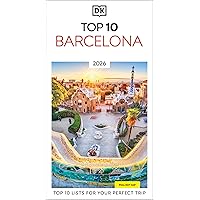In many European cities, flea markets are considered a weekend ritual, a place to spend a leisurely morning browsing and bargaining, often followed by a beer or a coffee on a sunny terrace. Spain is no exception, with a thriving culture of flea markets and vintage stores that draw both locals and tourists alike. Madrid’s iconic El Rastro, held every Sunday, is the most famous of these markets, sprawling across the streets of the La Latina neighborhood. Here, you can find everything from antique furniture to secondhand clothes, vinyl records, and quirky collectibles. It’s a vibrant scene, with street performers adding to the festive atmosphere, and food stalls offering everything from churros to tapas. For those who prefer a more curated shopping experience, Barcelona’s Els Encants is a mustvisit. This market, located in the heart of the city, is one of the oldest in Europe, dating back to the 14th century. It has recently been renovated, with a striking mirrored roof that reflects the hustle and bustle below. Els Encants is known for its eclectic mix of items, from vintage jewelry to retro furniture, and even rare books and art. It’s a treasure trove for bargain hunters, with sellers often willing to negotiate prices. Another gem is Valencia’s Ruzafa Market, held every Sunday in the trendy Ruzafa neighborhood. This market has a bohemian vibe, attracting a young crowd looking for unique fashion pieces, handmade crafts, and artisanal goods. The surrounding streets are filled with hip cafes and bars, making it a perfect spot to relax after a morning of shopping. The market is a reflection of Valencia’s creative energy, with many local artists and designers showcasing their work. In the south, Seville’s Calle Feria hosts a lively flea market every Thursday. This market is a mix of old and new, with stalls selling everything from antiques to modern gadgets. It’s a great place to find traditional Andalusian ceramics and textiles, as well as unique souvenirs. The market takes place in the morning, leaving plenty of time to explore Seville’s other attractions, such as the stunning Plaza de España and the historic Santa Cruz district. Finally, in the north, Bilbao’s Ribera Market is a mustsee for food lovers. This market, located in the heart of the city’s old town, is not only a place to buy fresh produce but also a culinary destination in its own right. The market’s food stalls offer a wide range of pintxos, the Basque Country’s famous small dishes, as well as seafood, cheeses, and local delicacies. It’s a feast for the senses, with the sights, sounds, and smells of the market creating an unforgettable experience.
In the heart of Granada, the Alcaicería is a mustvisit for those seeking a taste of the Moorish bazaar experience. Once a thriving silk market during the Nasrid period, it has transformed into a vibrant hub for artisans selling ceramics, leather goods, and traditional Andalusian crafts. Though it primarily caters to tourists today, its narrow alleys and colorful stalls offer a glimpse into Granada’s rich history. Nearby, the Plaza Larga in the Albaicín district hosts a weekly flea market on Saturdays, where you can find everything from vintage clothing to quirky antiques. As you wander through the stalls, the scent of Moroccan spices and the sound of street musicians create an atmosphere that feels timeless. This is the perfect place to pick up a unique souvenir or simply enjoy the lively ambiance with a cup of mint tea. Moving to the Canary Islands, the Santa Cruz de Tenerife flea market, held every Sunday morning, is a treasure trove of island curiosities. Located near the city’s iconic Auditorio de Tenerife, this market attracts both locals and tourists with its eclectic mix of goods. From handmade jewelry and local crafts to secondhand books and vinyl records, there’s something for everyone. The market is also famous for its food stalls, where you can sample traditional Canarian dishes like papas arrugadas (wrinkled potatoes) with mojo sauce. The friendly vendors are often eager to share stories about their goods, adding a personal touch to the shopping experience. For those venturing to Mallorca, the Inca flea market is a hidden gem. Held every Thursday, it’s the largest market on the island, drawing crowds from across the Balearics. The market is known for its leather goods, with Inca being the island’s leather capital. You’ll find everything from handmade shoes and bags to jackets and belts. Beyond leather, the market offers a wide range of products, including fresh produce, local wines, and artisanal cheeses. As you stroll through the bustling stalls, the lively chatter of the vendors and the vibrant colors of the goods create a sensory feast. It’s a great opportunity to mingle with locals and enjoy a slice of Mallorcan life. Finally, in the Basque Country, the Gernika market, held every Monday, is a testament to the region’s rich agricultural heritage. Located in the town famous for Picasso’s painting, this market is a showcase of Basque produce, from fresh vegetables and fruits to cured meats and cheeses. The highlight of the market is the local txakoli wine, a slightly sparkling white wine that pairs perfectly with the region’s culinary delights. The market is also a hub for traditional Basque crafts, with stalls selling handmade pottery, textiles, and wooden carvings. The friendly atmosphere and the chance to taste authentic Basque flavors make it a memorable experience.





